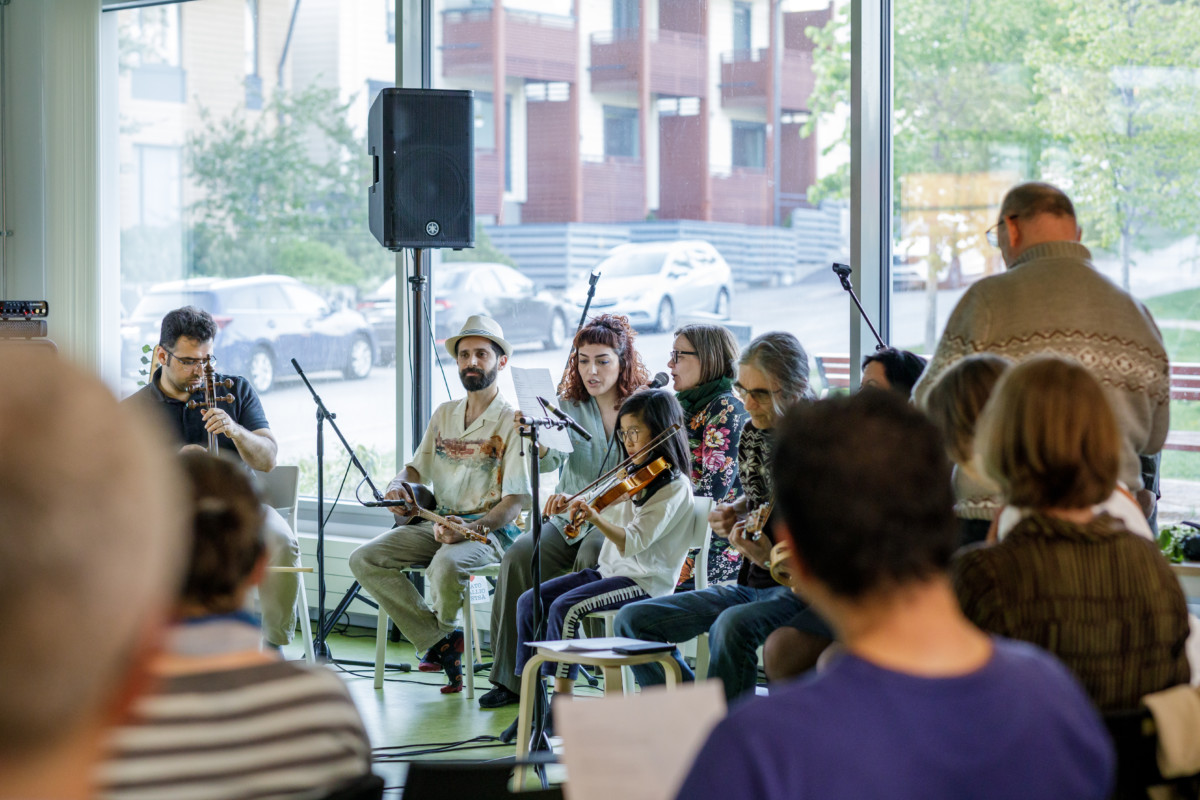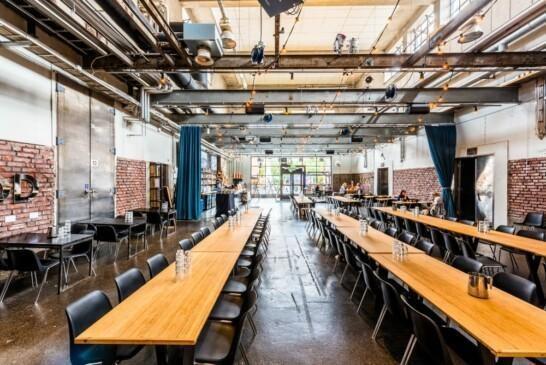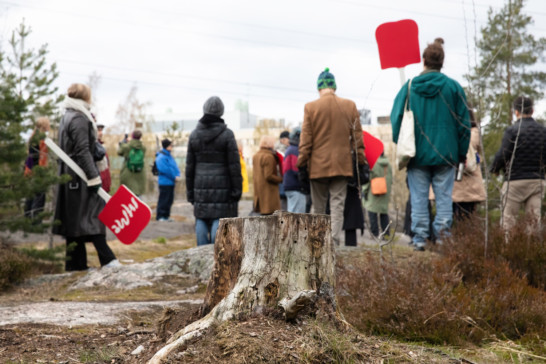News
What was the response to Chicago Boys – While We Were Singing, They Were Dreaming?

IHME Helsinki Commission 2023 took place over six weeks in April-May in different parts of Helsinki but what the response to Chicago Boys – While We Were Singing, They Were Dreaming was?
Each week, we held private rehearsals at Stoa Cultural Centre and public rehearsals in places chosen by the members of the amateur band formed for the Commission. The band was a diverse group of people who either joined through an open call for participants or were members of the public who participated in individual public rehearsals.
The project grew like a snowball so that, on 17 April, when the first private rehearsals started, no one knew how the piece would progress, which songs would be played, or where the public rehearsals would be held. By 27 May, we had visited Lapinlahti Hospital, Puhos shopping center, and Riistavuori, Stansvik and Matokallio forests. The band had rehearsed five songs, and new participants came to each public rehearsal, while others came for the second or third time.
Participating in the work made it possible to get to know new people and places in Helsinki that participants had not been to before or did not even know about. At the same time, it challenged them to let go of the pursuit of perfection and to pay attention to how the neoliberal mindset of efficiency and the pursuit of profit shapes the environment and our own activities.
The rehearsals evoked a variety of feelings in participants, ranging from peace and melancholy, to discomfort, joy and warmth. Coming to practices twice a week was even compared to meditation. Social influence through community, process-likeness, and acceptance of incompleteness emerged as central themes of the work in discussions between the band’s regular members and audience members.
Incompleteness and slowness challenge the “neoliberal running race”
The work was not easy to unpack. Those who participated in individual public rehearsals commented that, at the start of the rehearsal, there was confusion and incredulity about what it was about, what was happening, and how to behave. In the words of one participant:
“It immediately gave me the feeling that something is possible here and, at the same time, it’s like, how does this work, where are the instructions for use?”
Another commented that there was tension in the situation, which got him interested in observing and studying the progress of the rehearsal:
“I was quite an outsider there, so it was very interesting to study it from the side, and at no point did I have the feeling that I shouldn’t be here, it did feel like the right place to be and enjoy this work.”
The public rehearsals changed as the piece progressed. At the beginning, there were no ready-chosen songs yet, so the focus was on the conversation. Towards the end, more space and time was taken up by the music. A member of the audience who participated in the first public rehearsals commented that the title of the work “While We Were Singing” made a big promise about singing together, but she had to wait a long time for that to happen. At the same time, this challenged her to observe how the situation progressed and to accept the slowness and incompleteness of the process. In the end, these became important factors for her for resisting the “neoliberal running race”.
Audience members who participated in individual rehearsals described the atmosphere of the rehearsals as accepting, warm and genuinely honest. When you came to the rehearsals, you could come to the place as yourself, as imperfect as you are, without fear of having to strive for a top performance.
Members who committed to being in the band mentioned this same thing as an important realization for them. As the project advanced, it was possible to relax with your own instrument. The band being made up of different people and instruments also allowed the experience of playing in a group without having to fully know how to play your own instrument.
New perspectives on the city and social impact
Although the rehearsals focused a lot on playing, at the same time, it was possible to see your hometown from different perspectives. Those who participated in the band mentioned that the guided tours of various sites by city activists helped them to understand how the neoliberal market economy is changing the city. While, in the past, you might have been quite content to look at the houses or shopping centres being built next door in the neighbourhood, now you look at it a little differently and more broadly. Participating in the work made you question what the consequences of the city’s current rate of construction means for future generations. What will be left of our natural environments after ten generations if we continue at this same pace?
At public rehearsals, members of the permanent band as well as individual participants could share concerns about environmental change and deforestation without sinking into despair. The piece brought the band members and the audience together with urban activists who are fighting for their local forests and unique urban environments. This created a sense of community, where social influence takes place through coming together, singing, and making music, as well as through concrete actions.
Art can act as a catalyst that helps deal with difficult, sad topics, without being left “dejected and trampled underfoot”, as one member of the audience put it. The only thing that both the band members and those who participated in the individual rehearsals missed was more opportunities to participate, and more new public rehearsals. The process inspired them to think about how it would progress and change if it had been continued for another two months, or even two years.


